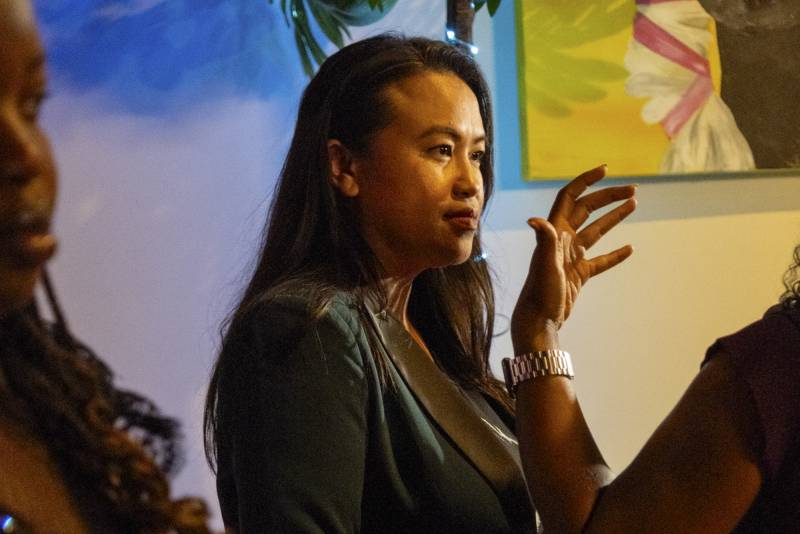Updated at 1:10 p.m. Saturday
Oakland Mayor Sheng Thao conceded the recall election on Friday night, setting off a process that will likely see several different mayors leading the city in the coming months.
Thao, who noted in her concession statement that she was the first Hmong American woman to become the mayor of a major American city, was recalled less than two years into her term.
“It was my goal to make Oakland safer, cleaner, and more vibrant,” Thao said in the statement. “And I am proud of what we accomplished together. We brought crime down dramatically across the board with a historic 35% reduction in homicides. For the first time in over a decade, Oakland went over a month without a single murder. Our work literally saved lives.”
In the updated results released Friday by the Alameda County Registrar of Voters, the recall held a sizable advantage — 65.3% to 36.1%.
According to Oakland’s city charter, once the election is certified and Thao’s office is declared vacant, the city council president fills the office while a special election is held within 120 days. In an interview with KQED, former Oakland City Councilmember Loren Taylor said he would run.
“Oaklanders have spoken with a very strong voice regarding what they need from city leadership, and they clearly have not been getting it from the current administration,” said Taylor, who finished second to Thao two years ago. “The same commitment I have to the city I’m from that drove me to run in 2022 is what’s compelling me to step up in the special election once the results are certified.”

